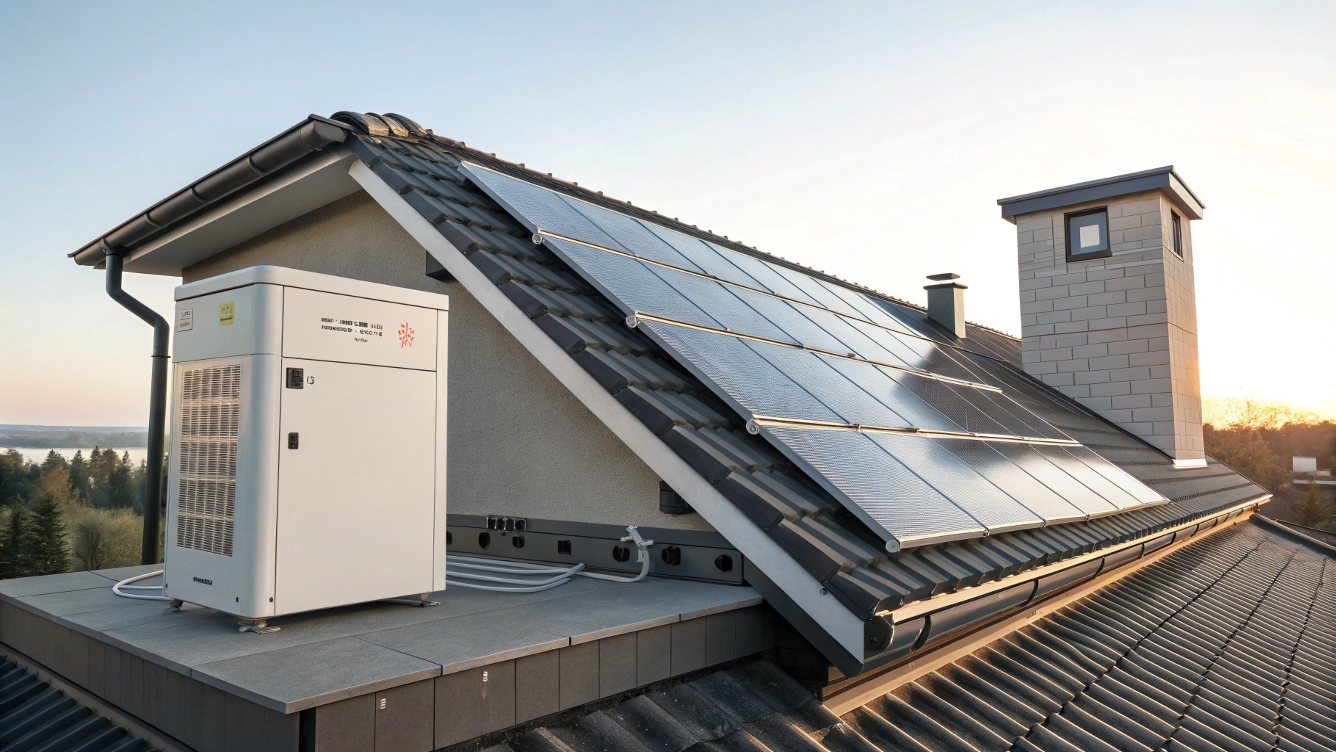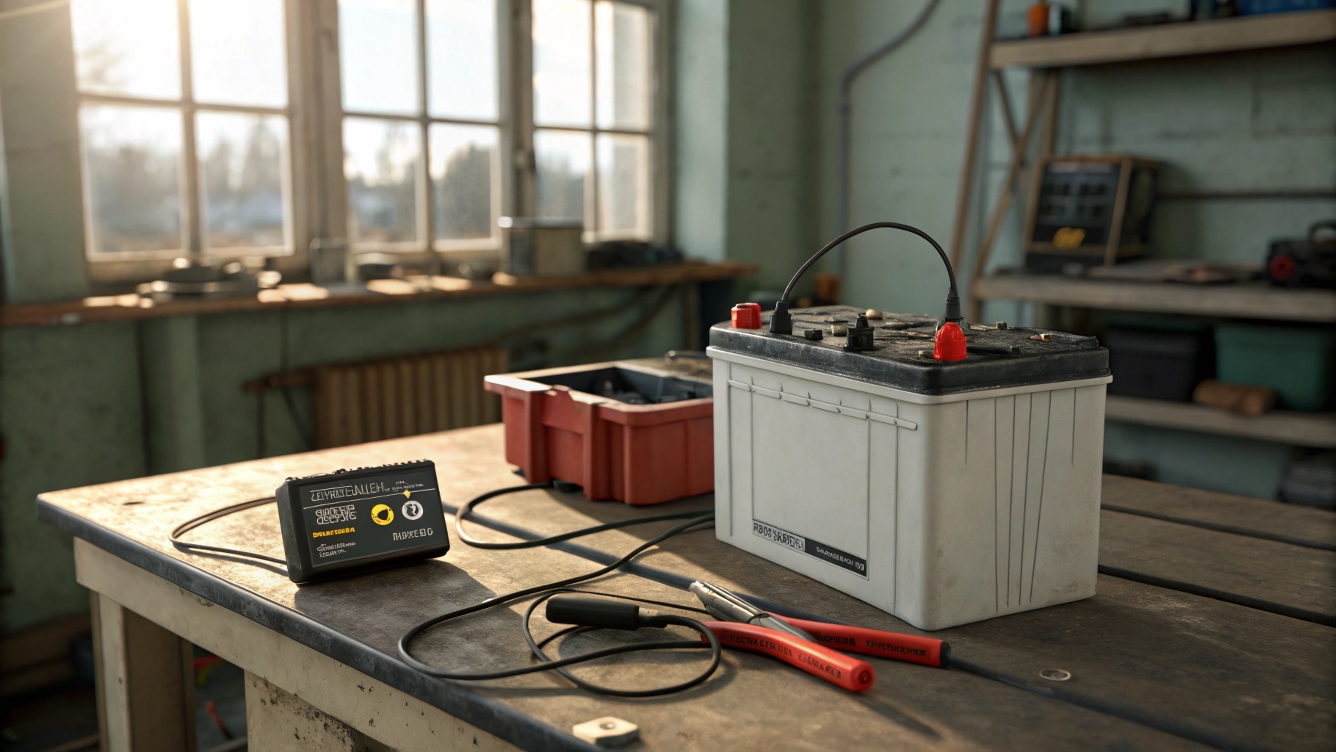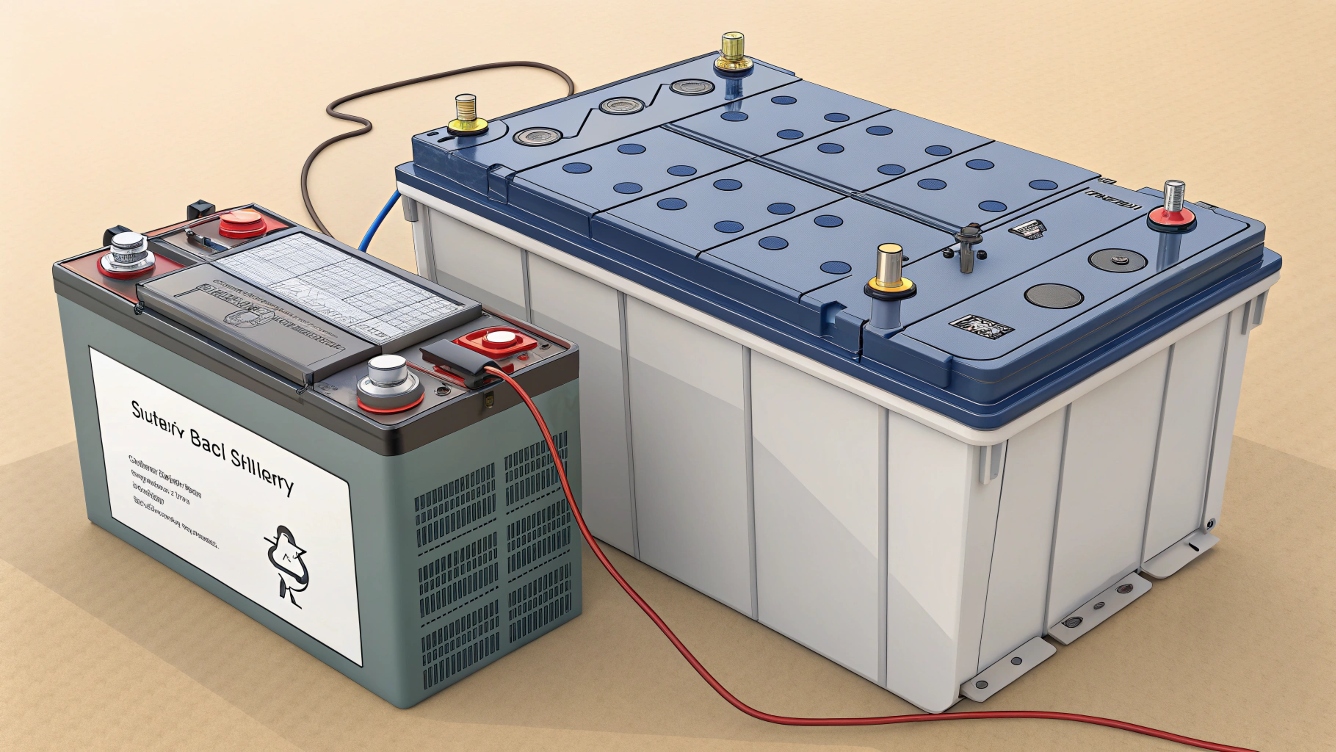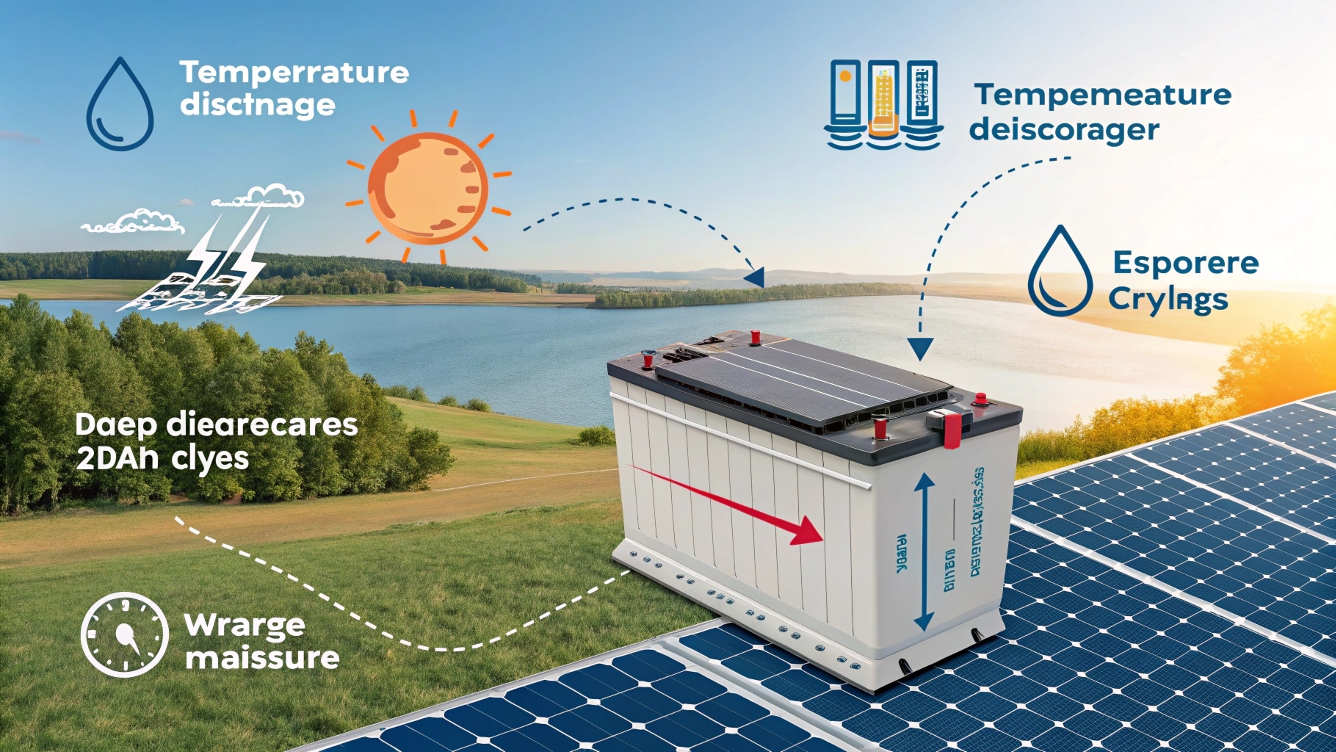Quelle est la durée de vie d'une batterie solaire 200h?
Le durée de vie d'un 200Batterie solaire AH peut varier considérablement en fonction du Type de batterie, profondeur de décharge, tolérance à la température, et entretien. Comprendre ces facteurs vous aidera à choisir la bonne batterie pour votre système solaire et à vous assurer qu'elle dure de nombreuses années. Voici une ventilation détaillée de la durée de vie attendue pour différents types de 200Ah batteries solaires:
Type de batterie et durée de vie
1. Lithium-ion (LiFePO4) Batteries
- Durée de vie: 10-15 années ou plus
- Cycle de vie: Les batteries LifePO4 peuvent généralement gérer 3000-5000 cycles de charge, qui contribue à leur longue durée de vie.
Avantages: Les batteries LifePO4 sont connues pour leur vie à cycle élevé, Capacité à être profondément déchargé sans endommager la batterie, et meilleure tolérance à la température. Ces facteurs les rendent idéaux pour une utilisation à long terme dans les systèmes solaires.
Pourquoi choisir LifePo4?
Ils offrent d'excellentes performances au fil du temps, sont plus tolérants aux décharges profondes, et ont généralement un 10-année ou plus garantie. Pour les utilisateurs qui souhaitent la fiabilité et les économies à long terme, un LiFePO4 La batterie est souvent le meilleur choix, Malgré le coût initial plus élevé.
2. Batteries au plomb
- Durée de vie: 3-7 années
- Cycle de vie: Les batteries à l'acide plomb fournissent généralement 500-1000 cycles.
Avantages: Ces batteries sont plus abordables, mais ont généralement une durée de vie plus courte par rapport aux batteries au lithium. Ils sont plus sensible aux décharges profondes et fluctuations de température, ce qui peut réduire leur durée de vie.
Pourquoi choisir le plomb-acide?
Les batteries à l'acide plomb peuvent convenir à ceux qui ont un budget serré, Mais leur performance et leur durée de vie peuvent être considérablement limitées par des décharges profondes. Pour les utilisateurs ayant des besoins de puissance modérés ou des contraintes budgétaires, Ils fournissent toujours une puissance fiable, surtout lorsqu'il est correctement entretenu.
3. Piles de flux
- Durée de vie: 20+ années (avec une maintenance appropriée)
- Cycle de vie: Les batteries de flux peuvent durer plus que 10,000 cycles, En leur rendant certaines des options de stockage d'énergie les plus longues disponibles.
Avantages: Bien que moins courant dans les configurations solaires résidentielles, batteries à flux sont idéaux pour installations à grande échelle où la fiabilité à long terme et la capacité élevée sont cruciales. Ils sont évolutif et plus tolérante aux décharges profondes.
Pourquoi choisir les batteries de flux?
Ces batteries sont idéales pour les systèmes à grande échelle ou commerciaux où la maximisation de la durée de vie de la batterie est une considération clé. Cependant, Ils ont tendance à être plus volumineux et plus cher que les autres types.
Facteurs affectant la durée de vie d'une batterie solaire 200AH
1. Profondeur de décharge (Ministère de la Défense)
- Batteries au lithium-ion (LiFePO4): Peut généralement être libéré à 80-90% sans affecter leur durée de vie.
Batteries au plomb: Ne devrait pas être déchargé ci-dessous 50% Pour éviter de raccourcir leur vie.
Le plus la profondeur de la décharge, moins vos cycles votre batterie aura. Donc, décharges peu profondes (Par exemple, Décharge uniquement 20-30% de la capacité de la batterie) prolongera la durée de vie de la batterie.
2. Tolérance à la température
- LiFePO4: Fonctionne bien à travers un large plage de températures (typiquement -20° C à 60 ° C).
Plomb-acide: Plus sensible aux températures extrêmes, des températures particulièrement élevées, ce qui peut conduire à une dégradation plus rapide.
Conseil: Le stockage et l'exploitation de votre batterie dans la plage de température recommandée par le fabricant est crucial pour prolonger sa durée de vie.
3. Entretien
Entretien approprié, y compris régulier inspection et nettoyage des terminaux, ainsi que de s'assurer que la batterie est chargée et stockée correctement, peut augmenter considérablement la durée de vie de toute batterie solaire. Par exemple, Batteries LifePO4 nécessitent moins d'entretien que batteries au plomb, mais les deux bénéficient de soins appropriés.
Combien de temps une batterie 200h peut-elle durer?

L'exécution d'un 200Batterie AH dépend du tension du système et le consommation d'énergie des appareils que vous prévoyez d'exécuter. Voici une estimation pour un 200Batterie AH:
| Tension de batterie | Le temps d'exécution avec une charge de 1000W | Exécution avec une charge de 2000w |
|---|---|---|
| 12En 200h | 1 heure 55 minutes | 57.6 minutes |
| 24En 200h | 3 heures 50 minutes | 1 heure 55 minutes |
| 48En 200h | 7 heures 40 minutes | 3 heures 50 minutes |
Le temps d'exécution dépendra du efficacité de l'onduleur, tension de batterie, Et le total puissance des appareils que vous alimentez.
Signes que votre batterie solaire a besoin de remplacer
Comme votre 200Batterie solaire AH approche de la fin de sa vie, Il montrera quelques signes communs qui indiquent qu'il doit être remplacé:
- Temps de charge long: Si cela prend plus de temps que d'habitude pour charger vos appareils, Cela pourrait être un signe que la sortie de tension de la batterie a chuté.
- Décharge rapide: Si votre batterie ne fait pas partie inhabituellement rapide, Il est peut-être temps pour un remplacement.
- Charge lente: La charge prend plus de temps que prévu, indiquant que la batterie ne tient plus de charge efficace.
- Dommages physiques: Si la batterie est fuite, corrodage, ou devenir visiblement déformée, c'est un signe que cela ne fonctionne plus correctement.
Une batterie solaire peut-elle durer 20 Années?
Oui, selon le Type de batterie et entretien, batteries solaires peut durer n'importe où 5 à 25 années. Par exemple:
- Batteries LifePO4 peut facilement durer 10-15 années et sont souvent soutenus par un 10-garantie de l'année.
- Batteries au plomb avoir une durée de vie plus courte 3-7 années.
Pour vous assurer que votre batterie dure le plus longtemps possible, soins appropriés, utilisation efficace, Et le bon environnement est essentiel.
Conclusion

Le durée de vie d'un 200Batterie solaire AH dépend du Type de batterie, profondeur de décharge, et entretien.
- Batteries LifePO4 fournir la plus longue durée de vie (10-15 années) et sont le meilleur choix pour les utilisateurs à la recherche de la longévité et des performances élevées.
- Batteries au plomb sont plus abordables mais ont une durée de vie plus courte (3-7 années).
- Batteries à flux offrir la plus longue durée de vie (20+ années) mais sont généralement utilisés dans les systèmes à grande échelle.
Les soins appropriés et l'entretien régulier sont essentiels pour maximiser la durée de vie de votre batterie solaire. Si vous cherchez un batterie durable et fiable pour votre système solaire, Explorez notre gamme de Batteries LifePO4 et solutions d'énergie solaire.


